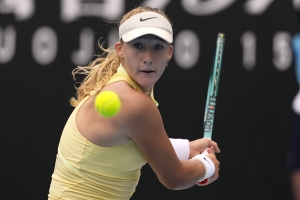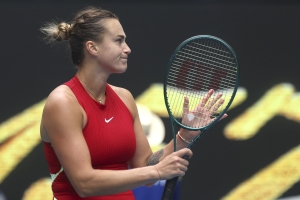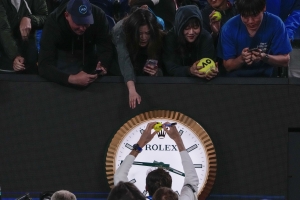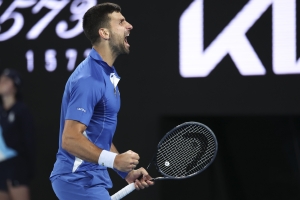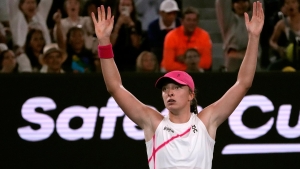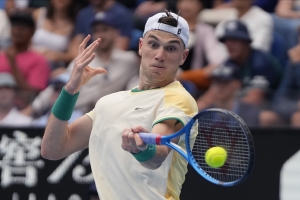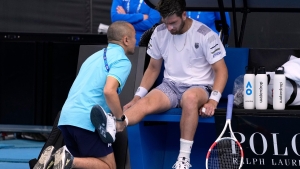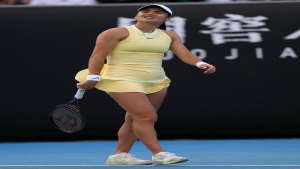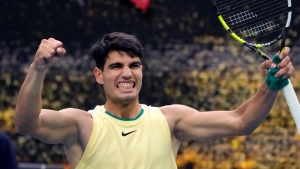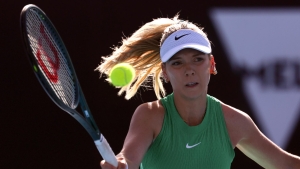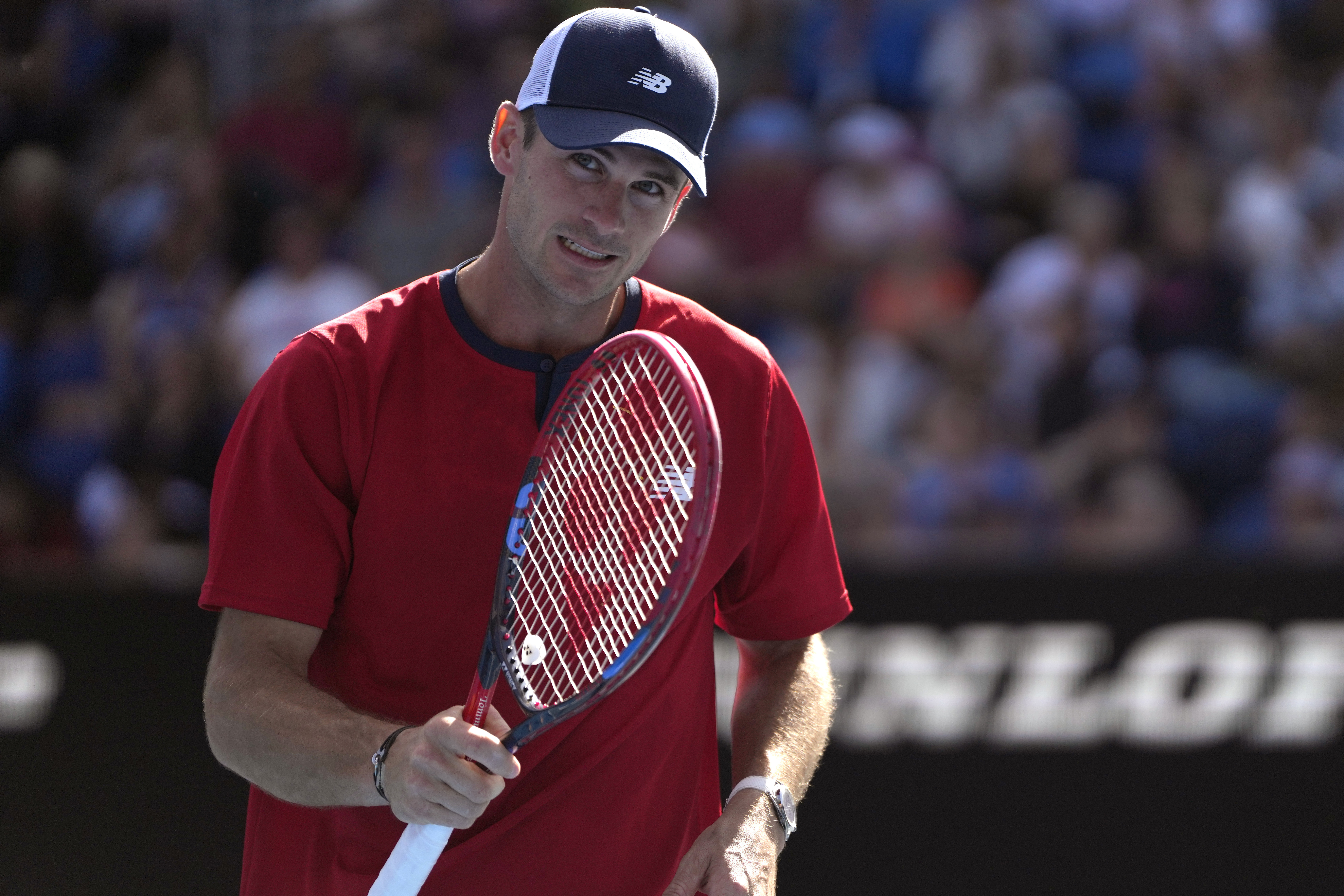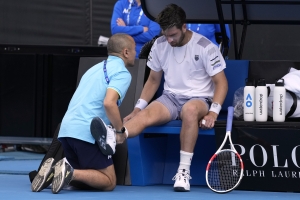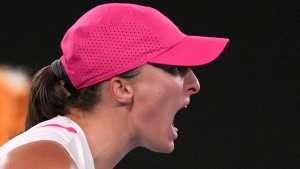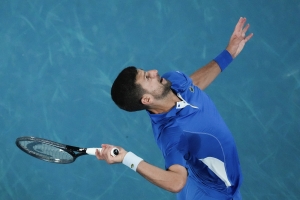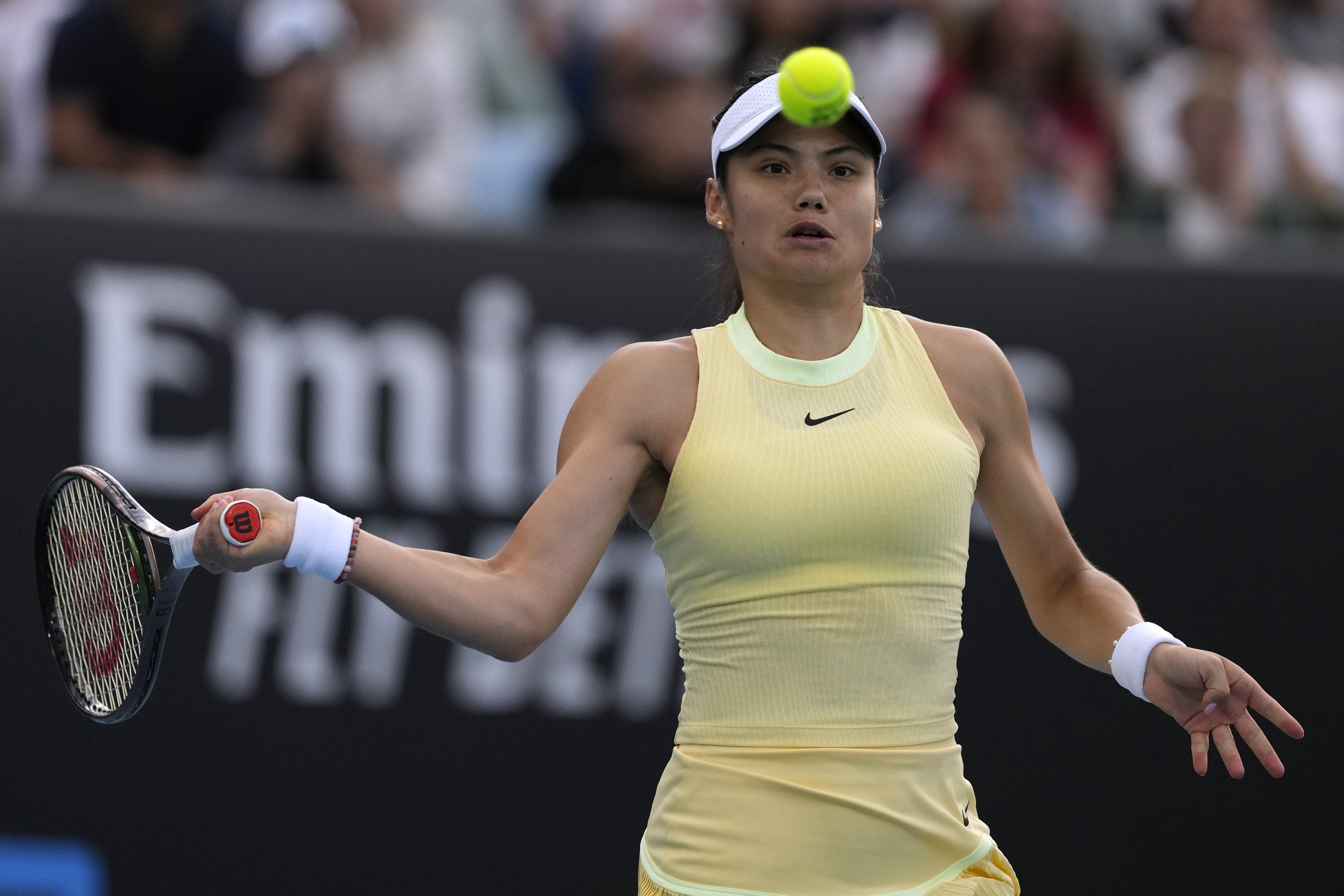
Emma Raducanu struggled with a stomach bug during a marathon second-round loss to Wang Yafan at the Australian Open.
The former US Open champion, playing only her fourth match since returning from eight months out and three surgeries, had battled back strongly from a set and a break down to force a decider.
But Raducanu then began to show a lot of discomfort, clutching at her chest and abdomen before calling the trainer two games in.
She had her blood pressure checked and took some pills before resuming, and she battled hard to try to turn the match around but Wang held firm to win 6-4 4-6 6-4 after two hours and 55 minutes.
It appeared Raducanu was struggling with her breathing but she revealed in her press conference that she was feeling sick having gone into the contest under the weather.
“I think I just had a bit of a stomach bug beforehand,” she said. “Now I feel a little bit better. I had some time.
“During the match, third set I was 30-0 up serving. Then all of a sudden I just felt so sick, just really weak and nauseous. Throughout the third set I think everyone could see it was a bit of a battle.
“Like physically, body-wise, I felt fine. It was more I was throwing up in my mouth. Then after the match, it came out. Now I’m OK. I’ll get over it. It just sucks with the timing.
“I was actually feeling good about my tennis. Mentally, I don’t know why, I just felt really composed the entire time. Even in the first set when I was making a ton of errors with the wind, I kind of always had this feeling that I was coming back, just tidy up the errors. I felt pretty composed throughout.”
Raducanu is no stranger to medical time-outs and retirements but she was determined to keep going this time.
“I’ve been in that situation before in matches, whether it was with illness or injury, and retired a few times,” she said.
“With what I went through last year, you feel awful right now, at some points I couldn’t really see the ball very well, but I think it’s made me so much tougher. There was no way I was going to pull out. She was going to have to beat me, and she did. She served it out.”
Raducanu’s exit followed those of Katie Boulter and Jack Draper and means Cameron Norrie, who battled from two sets down earlier to beat Giulio Zeppieri, is the only British player through to the third round.
Raducanu comfortably won her first-round match against Shelby Rogers, but the American looked very rusty after a long break herself which made it difficult to gauge the 21-year-old’s true level.
This was a much bigger test, with Wang a former top-50 player now ranked 94 who is still working her way back up the game after choosing not to travel amid China’s restrictive Covid policies.
The 29-year-old’s game initially held up better than Raducanu’s in the breezy conditions and she looked in control at one set and 2-0 up, at which point the British player cut down her errors and fought her way back into the contest.
She broke to lead 5-3 with a sizzling cross-court winner but tentativeness crept in as she tried to serve out the set, with two chances going begging.
Raducanu did not let the disappointment affect her, though, and refused to be hesitant when more chances arrived on Wang’s serve, drilling a backhand winner to clinch a mammoth 65-minute set.
At that stage it appeared Raducanu was the favourite but her physical issues quickly became apparent and she was unable to turn the match back around in her favour.
She leaves Australia greatly encouraged for what is to come, though, saying: “There were doubts whether I would be able to make the Australian Open trip.
“I think that to be here is a bonus, a good starting point I would say, because I started putting good practice sessions together with (coach) Nick (Cavaday), we’re doing good work off the court.
“I’m feeling very positive. I really just want to play a full season. The encouraging thing is, even though I played two back-to-back three-setters in Auckland, a three-setter today, body-wise, strength-wise, I didn’t come up with any random niggles.
“It was just me throwing up. That’s fine. That’s not normal, but it’s like a one-off.”























